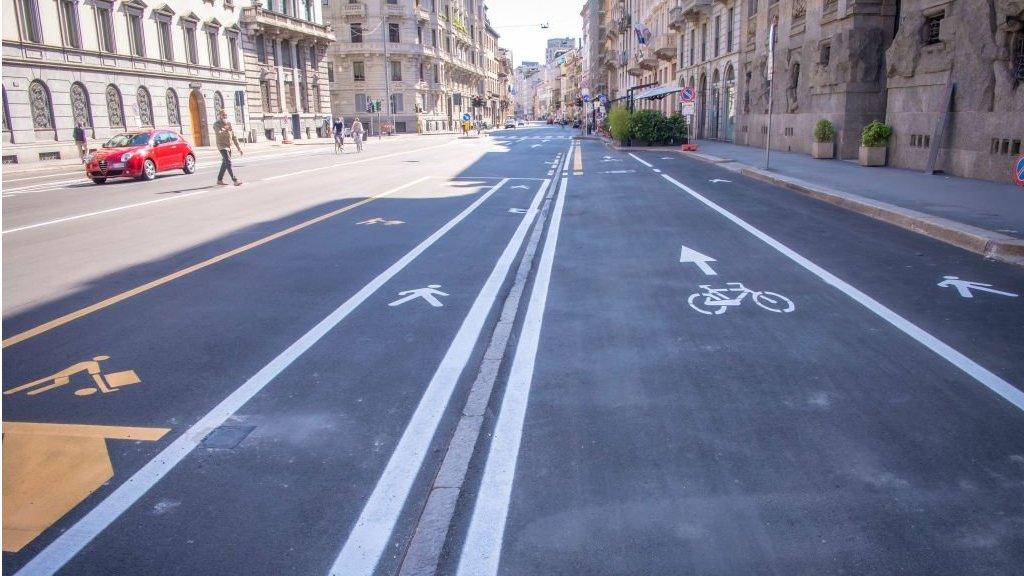Coronavirus: Bicycle shops report surge in e-bike demand
- Published
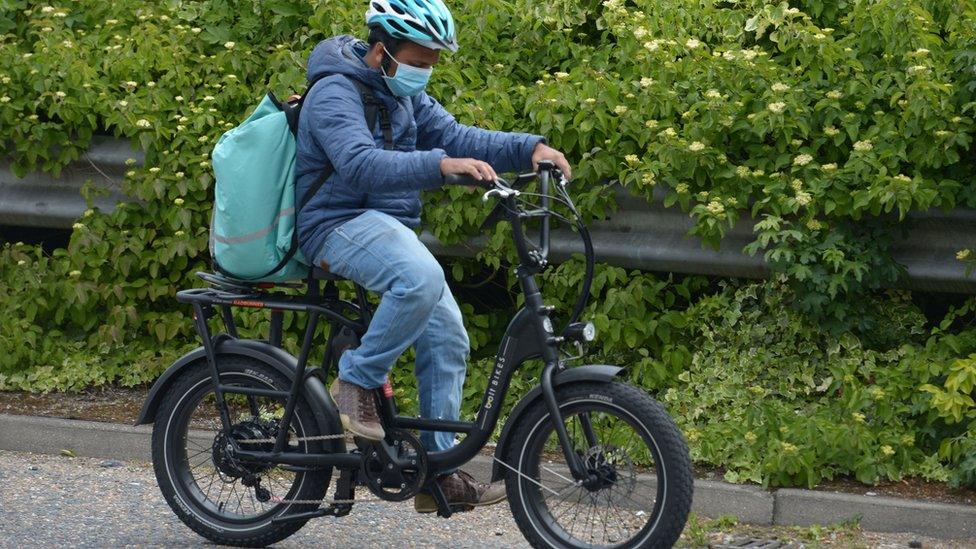
Will the future be delivered via electric bikes?
Bicycle businesses in Northern Ireland are reporting a surge in the demand for electric bikes as lockdown eases.
A change in government rules in mid-May made it easier than ever to ride an electric bicycle.
That, coupled with restrictions on public transport because of social-distancing guidelines, means more commuters are getting on their bikes.
Small independent cycling shop owners in Northern Ireland are reporting a "bicycle boom".
The switch to pedal power prompted by Covid-19 may be "the push we all need", said Eamon McConvey of McConvey Cycles in Belfast.
He wants to see the correct infrastructure in place to encourage more people to choose the bicycle.
"There is a new breed of person who has not ridden a bike in years," he said.
"Thousands of those people are now back on bikes and that's the push that we all need."
'Cycle with a smile'
People were keen to see money spent on an infrastructure that supports both cycling and walking, said Mr McConvey.
"If there is one good and hopeful thing coming out of this, it's that people can imagine a Belfast which puts money into the infrastructure," he said.
He was not sure people would stand for anything less any more, added the businessman.
McConvey Cycles is one of a number of independent cycling businesses across Northern Ireland that have seen increased interest in their products during the pandemic.
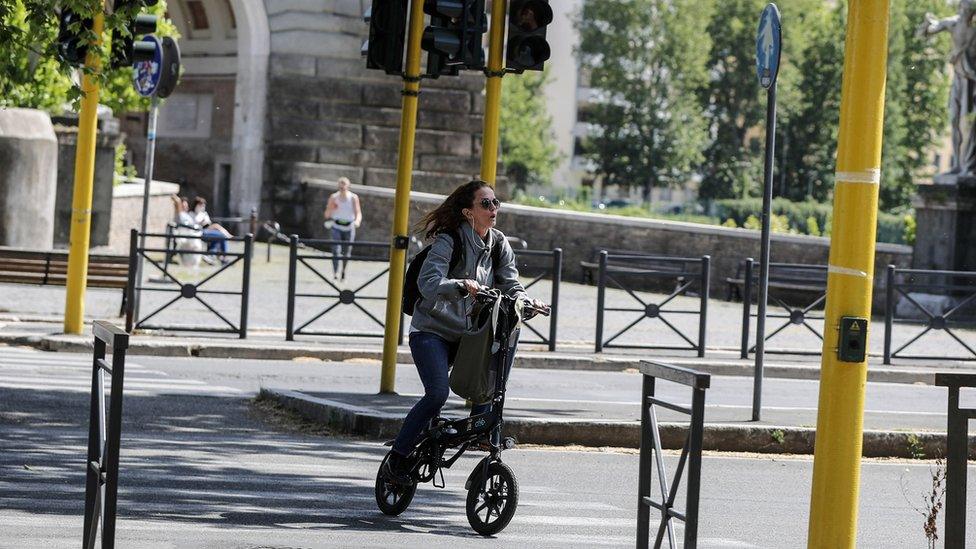
Across Europe, more and more people are choosing to travel by e-bike
This doesn't mean the pandemic has been easy for the firm, but Mr McConvey remains hopeful - particularly about the e-bike market.
"The electric bike business has gone through the roof in the past three or four months," he said, adding that the entire ground floor of his shop was focused on electric bikes.
"Whether it is the introduction of legislation or that people are starting to think more about it - when you start to ride an e-bike, you cycle with a smile on your face," he said.
All-day queue
The picture is similar for Paul Kane of Dave Kane Cycles in east Belfast.
His father, Dave, opened the family business in 1978, but the shop has never been so busy.
Paul and his brother Mark are working long hours to meet customers' needs.
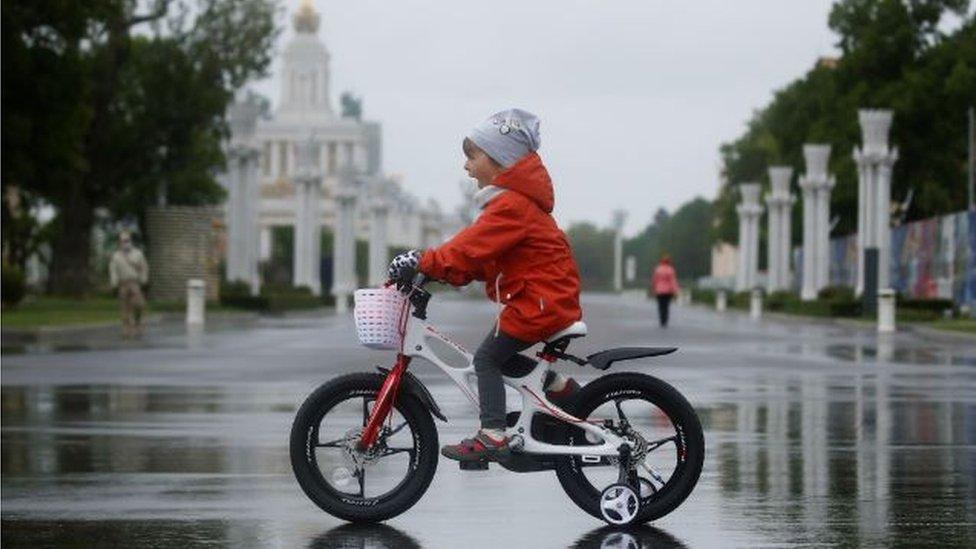
Children's bikes are in high demand says Paul Kane
The Kanes shut their doors for almost seven weeks earlier in the pandemic. When they reopened there was a surge in demand for both new bicycles and repairs.
The May bank holiday Monday saw a queue outside the shop all day.
"When the rules changed in May for electric bikes, we had a lot of inquiries and sales," said Paul Kane.
"Commuters are not taking to public transport and see this an an alternative."
He said customers with underlying health conditions were feeling the benefits of an e-bike.
"We sold an electric bike to one man who, in just three weeks, cycled nearly 1,000 miles. He was getting further and seeing places he had not seen in a long time.
"It is good for your mental state too. It does not do all the work for you. But it helps."
Rolling off the shelves
Children's bicycles are also in high demand.
"Our UK supplier has sold out of every single model in every colour and every size," said Mr Kane.
"There is nothing in stock until the middle of June."

Infrastructure Minister Nichola Mallon said she is committed to a healthier, greener lifestyle
The brothers are thankful that their small business and others like them are operating. But they are aware of the difficulties others face.
"Obviously we are not cheering from the rooftop at this time and we are mindful of other businesses too and their difficulties," said Mr Kane.
Greener times?
The rule change in May meant people in Northern Ireland no longer need to register or license an electric bike.
Before then, anyone riding an e-bike in Northern Ireland without a proper licence faced a fine of up to £1,000.
Infrastructure Minister Nichola Mallon said this was all part of the plan for a "cleaner, green and healthier society".
The most recent official survey data, from 2018-19, suggested that just 2% of Northern Ireland's workforce cycled to work., external
The walking and cycling charity, Sustrans, believes this is a window of opportunity to get more people to leave the car behind.
The fact that air pollution had dropped by 20% in Belfast by the end of March - according to data analysis from the University of York - is a stark message about what cars do to the environment, said the charity's policy and media advisor Anne Madden.
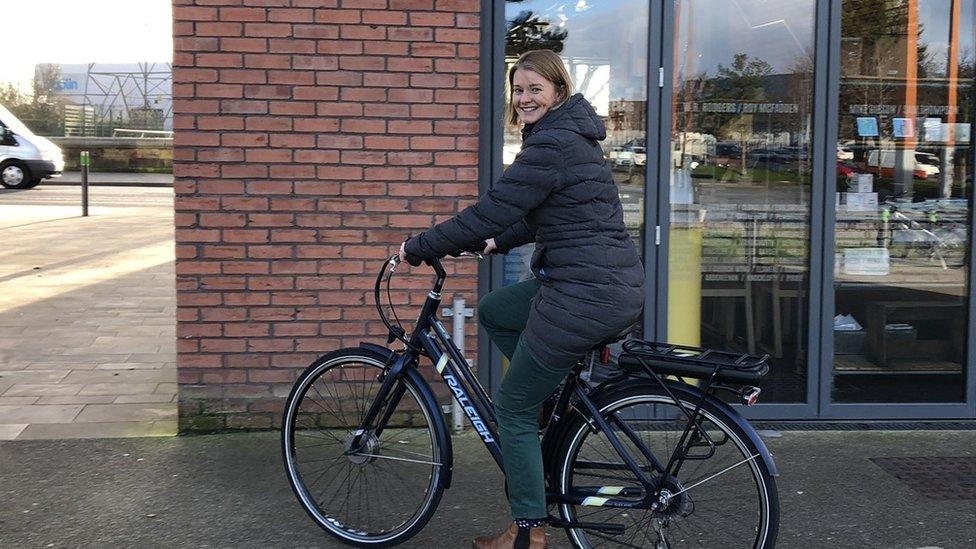
Anne Madden, of Sustrans, is passionate about getting more people cycling and walking
"We want to see people who would normally jump in the car for short journeys to stop doing that," she said.
"The annual Travel Survey reveals that, in Belfast, almost half of the journeys we make are less than two miles.
"In the city, a journey of three-to-five miles is a 20-minute cycle. There is no reason why more of us could not take a bike."
She recognises that safety is a factor and Sustrans has been pushing Stormont ministers to provide more protected cycle lanes in the city.
Sustrans also supports the use of electric bikes which, she said, were part of "a cycling revolution across Europe".
She said a window of opportunity had been opened - and the next step was about pushing forward.
- Published10 May 2020
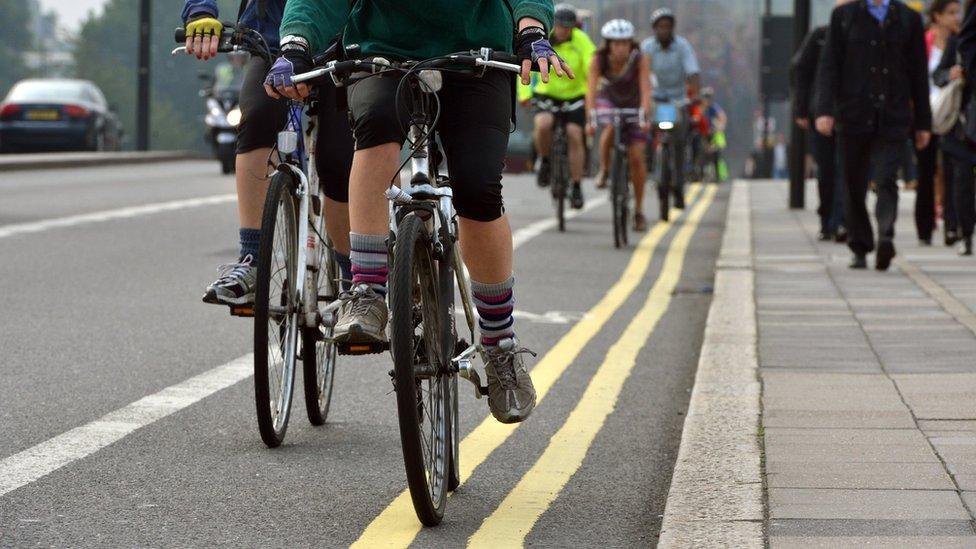
- Published8 April 2020
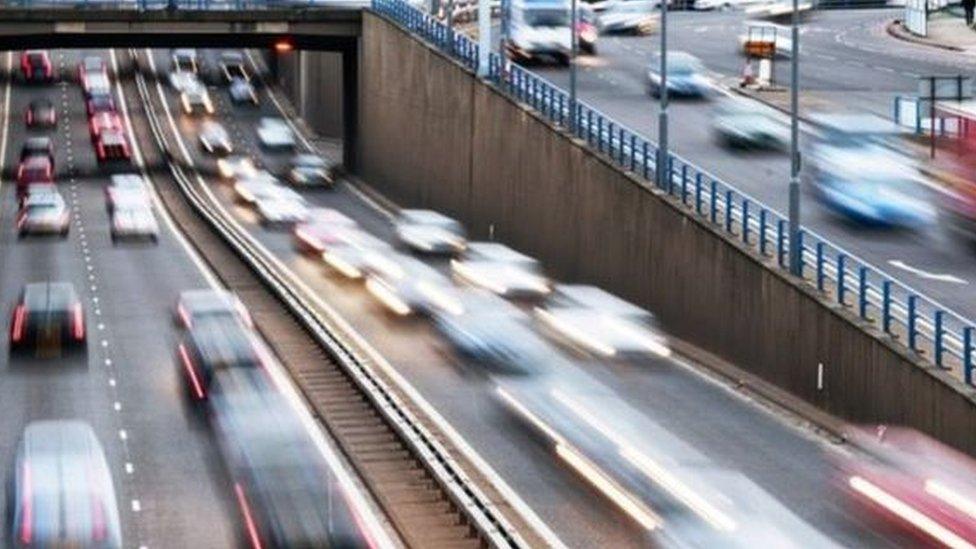
- Published8 August 2017
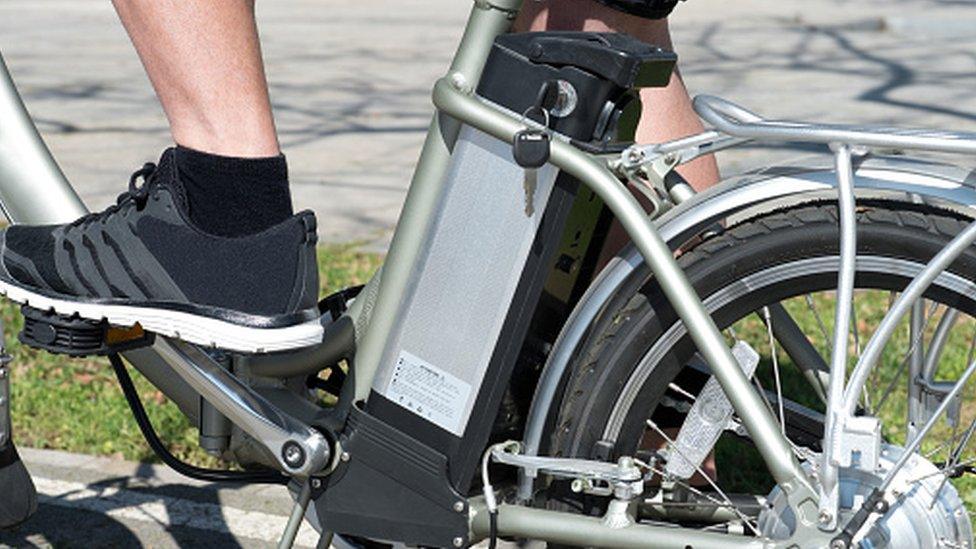
- Published8 March 2014
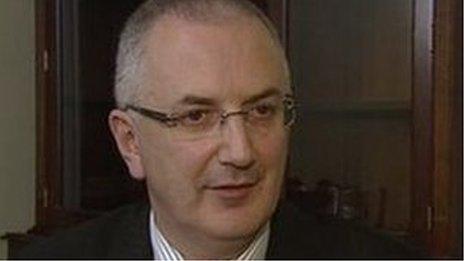
- Published9 May 2020
